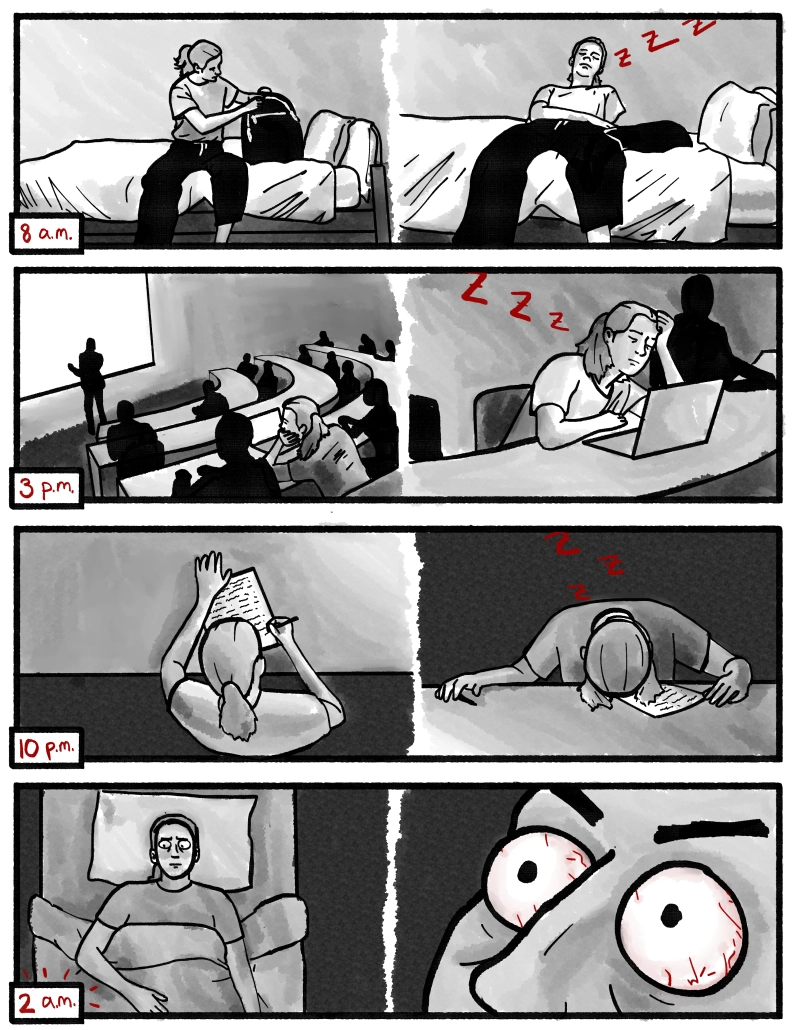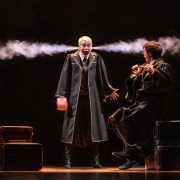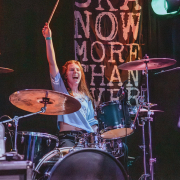Imagine stepping onto “Hell Island” — not as ominous as it sounds, but the thrilling start to an unconventional Valentine’s Day event designed by the USC Chinese Graduate Student Association. Picture groups of students, previously strangers, laughing and competing in ice-breaker games, drawing lines on a blank canvas that slowly morph into a collaborative piece of art. This isn’t just a game; it’s the beginning of “Heaven or Hell,” a bold experiment in experiential dating set against the backdrop of USC’s evolving romantic scene.
“In South Korea and China, reality TV shows about dating and relationships are really booming,” said Gaspard Wu, one of the CGSA event designers and a graduate student at USC Sol Price School of Public Policy . “We want people to connect, to get to know people they didn’t know before. And maybe there can be chemistry or romance beginning in our event — that’s what we want.”
Another member, Zelong Wang, a graduate student majoring in Computer Science, shared: “This organization just tries to create a community for not only graduate students but also undergrad, mostly Chinese students so that we can gather together and [get to] know each other and have fun.”
The “Heaven or Hell” event served as a quintessential example of experiential dating, a concept that seeks to redefine traditional meet-ups by emphasizing shared activities and emotional engagement. Unlike traditional dating, which often revolves around static interactions like dinner or a movie night, experiential dating immerses participants in activities that foster deeper connections through adventure, challenge and mutual discovery. Through a series of themed challenges and cooperative games, participants were encouraged to connect in ways that go beyond mere conversation. The activities were designed to break down barriers, allowing participants to engage with each other on a more meaningful level.
In that spirit, members of the CGSA embarked on an ambitious experiment to reimagine college dating. Drawing inspiration from the emotional depth and authentic relationships showcased in Korean TV shows like “Single’s Inferno,” they encouraged participants to reveal their true selves and form genuine connections based on mutual respect and shared experiences. Moments in “Single’s Inferno,” where contestants navigate their feelings and attractions without the distractions of the outside world deeply influenced the structure of “Heaven or Hell.” This event, held on February 16, aimed not just to create matches but to foster memorable interactions through shared challenges and emotional vulnerability, offering a fresh perspective on dating to 40 adventurous students.
The journey began with an encounter step on “Hell Island,” where participants embarked on a series of ice-breaker games intended to dissolve initial hesitations. In this phase, individuals were ranked based on the points their teams accumulated through each game, establishing a competitive yet friendly environment that encouraged interaction and teamwork from the start. This ranking then determined the sequence in which participants proceed to the next phase of the event. These games were ingeniously designed to dissolve the initial awkwardness that often accompanies new introductions. Participants, in groups of four — comprising two men and two women — engaged in a unique collaborative challenge. Each member contributed to creating an art piece by drawing a line on a white paper, working together without prior acquaintance. This simple yet profound activity served as a metaphor for the building of connections, demanding cooperation, creativity and communication from each participant. Here, amidst laughter and playful competition, bonds began to form. One of the participants, Ying Liu, a master’s student studying business administration, captured the essence of the experience.
“The concept is we start at the Hell Island, and we want to get out from that place and find a partner that will help you get to Paradise Island,” Liu said.
As the adventure unfolded, these intrepid explorers chose their path through themed rooms, each a test of love’s many facets: sacrifice, persistence, reservation and the ultimate commitment.
At the next step, Getting to Know Each Other, CGSA’s event directors orchestrated a dating tea party, designed to foster connections deeper than the superficial encounters often found in the quest for companionship. Here, previously ranked participants who had earned high rankings from earlier games were awarded special ‘Buff’ rewards, granting them exclusive privileges within the event. These privileges included the ability to use unique props as a means of secretly conveying interest or appreciation towards someone they were drawn to.
Privileged participants could also get a pen and paper to write a secret letter to another person they admire. They wrote down some questions or words of praise, weaving their curiosity and admiration into the text. These letters, imbued with sincerity and a dash of vulnerability, were then delivered anonymously, adding an element of mystery and excitement. Recipients of these letters found themselves holding not just a piece of paper, but a mirror to someone else’s affection, albeit without knowing whose heart spoke to them.
This intimate communication served as a bridge for shy individuals to courageously unveil their innermost thoughts and feelings. This phenomenon was particularly evident in the context of group experiential dating, where the challenge of initiating emotional expression was a formidable barrier for some. A notable number of participants found themselves at a crossroads, unsure of how to navigate the delicate process of opening up in such a setting. This hesitation often led to missed opportunities, a poignant reminder of the delicate dance between vulnerability and connection. Liu felt as through it mirrored his own experiences outside of the event.
“I was born and raised in China … in China, people are very shy and when it comes to dating, you tend to ask friends or other people for help. Some people are just more introverted than others. And then, compared to American-style dating, it’s more like, you see someone you know and you’re interested in me, hang out and then introduce yourself and get their number.” Liu said.
After that, there were the sports sessions, a testament to teamwork and mutual understanding, where activities like double dribbling and three-legged races mirrored the dance of developing relationships.
The climax, a talent show followed by the ultimate match, was the final testament to the depth and variety of the connections made. These talent shows were not just a display of skill but an expression of the soul, leading to matches that heralded the start of journeys to ‘Paradise Island’ — a place of triumph, celebration and potentially, lasting love.











